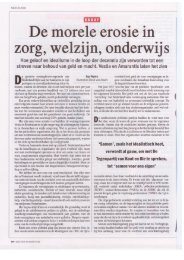Download this file - TwileShare
Download this file - TwileShare
Download this file - TwileShare
You also want an ePaper? Increase the reach of your titles
YUMPU automatically turns print PDFs into web optimized ePapers that Google loves.
under Achillas from Pelusinm. Achillas takes possession of Alexamlria, except the part held by Caesar, which the<br />
latter places in a state of defence. Caesar also holds Ptolemy and Pothinus as hostages.<br />
Caesar being now in an embarrassing position, secures his rear by taking possession of the tower on the island of<br />
Pharos ; sets alxjut obtaining reinforcements in ships and troops ; and calls on Mithridales of Pergamura to march an<br />
army to his aid b}' way of Syria.<br />
Caesar not only holds his own amidst the intrigues against him in Alexandria, but also goes out himself with his<br />
fleet and successfully brings in a convoy of reinforcements arriving from Rhodes. An attempt to intercept him in<br />
<strong>this</strong> venture is frustrated by a naval victory gained by Caesar and the Rhodian admiral Euphranor over the<br />
Alexaudiians.<br />
The Alexandrians now prepare a fresh fleet in order to blockade Caesar. Eut seeing the danger, Caesar takes his<br />
fleet to the Eunostos harbour, attacks tlie enemy and signally defeats them. He tlien captures the entire island of<br />
Pharos, so as to command tlie mole (Heptastadiiim) and the entrance to both harbours.<br />
The next day Caesar attacks the Alexandrian fort on the south end of t!ie mole ; and in a fight on the mole, between<br />
the island and the city, Caesar is defeated and his troops put to liight, Caesar himself being saved bj- swimming to a<br />
galley. His troops, however, soon recover their spirit. At <strong>this</strong> time Caesar, approached by the Alexandrians, bunds<br />
over Ptolemy to them.<br />
The Alexandrians, still in an unsettled state, now hear the true rumour that a force is marching overland to Caesar's<br />
aid, and also a false rumour that a convoy of troops is approaching him by sea. They take steps to intercept the<br />
latter, and Caesar sends out a fleet under Tiberius Nero to fall upon their ships. In <strong>this</strong> action Caesar's fleet is<br />
defeated.<br />
47.—In January, Mithridates of Pergannun arrives across Syria with reinforcements for Caesar. He assaults and captures<br />
Pelusium, then marches towards Memphis, and soon approaches the Delta.<br />
Ptolemy despatclies a force from Alexandria to check Mithridates. This force meets Mithridates 30 miles below<br />
Memphis and is signally defeated.<br />
On news of <strong>this</strong> reaching Alexandria, Caesar and Ptolemy both set out, one to aid the other to resist Mithridates.<br />
Caesar, leaving a garrison behind, is conveyed by his fleet along the coast ; he disembarks and marches along the<br />
south of lake Mareotis, and joins Mitluidates before Ptolemy is aware of his movements.<br />
Ptolemy is encamped on a hill protected by the Nile on one side aiul a morass on the other. But Caesar so<br />
manoeuvres his force as to take Ptolemy in the front and rear, and signally defeats and routs the Alexandrians.<br />
Ptolemy himself perishes by drowning.<br />
Caesar then advances with liis cavalry to Alexandria, which opens its gates and sues for pardon. He now settles<br />
matters bj- ])lacing Cleopatra and the jounger son on the throne, and, leaving a garrison, himself starts by sea for<br />
Syria with the sixth legion.<br />
\Vlule Caesar was engaged in Egypt, there was trouble in Illyricum. A. Gabinius is sent fiom Italy to assist<br />
Cornuficius, but in a winter campaign is defeated by Pompey's lUyrian auxiliaries and retreats to ijalonae, where he<br />
is invested ; Pompey's lieutenant, Octavius, also overnnis half Illyricum.<br />
P. Vatinius now collects ships at Brumlisiuiu and goes to the relief of Illyricum. He con)pels Octavius to raise the<br />
siege of Djrrhachium, and inflicts on him a severe defeat near the Island of Tauris. Octavius then retires to Africa,<br />
and Illyricum is saved to Caesar.<br />
While the opposing Roman parties are engaged, trouble arises also in Asia Minor. Pharnaces, king of the Bosporus,<br />
thinking the occa.sion suitable, threiitens Armenia and Cappadocia, which appeal to Domitius Calvinus, Caesars<br />
representative in Asia. Domitius marches from Comaiia to the west of<br />
is defeated and compelled to retire into Roman Asia. Pharnaces<br />
Pontus.<br />
Nicopolis, and in the action with Pharnaces<br />
now re-establishes his father's kingdom in<br />
and from Tarsus starts<br />
Caesar, on his wa3' from Egypt, after visiting certain Sj'rian towns (see Map), sails to Cilicia ;<br />
at once for Pontus by «ay of ilazaca in Cappadocia.<br />
Doubting tlie good faith of Pharnaces, Caesar refuses to accept his submission and iletermines to punish him. Caesar<br />
seizes an unoccupied hill near Zela, where Pliarnaces is encamped, whereupon the latter attacks the Romans. A<br />
severe struggle ends in the defeat and flight of Pharnaces, and tlie destruction of his army. Leaving a garrison in<br />
Pontus, Caesar, on the next day, starts<br />
equiliim.<br />
for Rome, where he had been made dictator, with Antony as his ma'ji-iter<br />
The Roman province of Africa was now in the hands of Pompey's adherents ; Metellus Scipio, Cato, Labieuus, the<br />
two sons of Pompey and others having collected there the remnants of the Pompeian army. Cato was the praetor at<br />
Utica. Ring Julia was allied to the Punipcians.<br />
Caesar, determined to break up <strong>this</strong> coalition, collects transports and troops and starts for Africa. Taking Lilybaeuni<br />
on the way, he sets sail from Aponiana, passes Clupea ami Neapolis, and lands and encamps at Hadruiiietum with<br />
3,000 men and loO cavalry, having parted company with the rest of his ships, which were blown by the wind, where<br />
he knew not. Not finding himself strong enough to attack the place, he retires to Ruspina, then to Leptis, and<br />
returns again<br />
troops.<br />
to Ruspina, where he forms an entrenched camp. Here he is joineil by his missing ships and<br />
Socn after, Caesar with a small force goes into the interior for a foraging expetlition, wlien he is practically surrounded<br />
by an army of Pompeians under Labieuus, Petreius and others. By his tactical manoeuvres Caesar extricates<br />
himself, inflicts a defeat on the Pompeians, and regains his camp at Ruspina.<br />
Scipio,<br />
fortify<br />
leaving a strong garrison at Utica, marches to Hadrumetum, then<br />
a camp three miles south of Caesar's position at Ruspina and<br />
joins Labienus and Petreius. They<br />
practically blockade him from the<br />
land-side.<br />
At <strong>this</strong> time young Pompey is urged by Cato to invade Mauretania ; he is, however, driven away from the coast and<br />
sails for the Balearic islands. Owing to <strong>this</strong> attempt, Bogudes, king of Mauretania, anxious to assist Caesar, joins<br />
P. Sittius, a soldier of fortune, and they invade Numidia and capture Cirta, thus coin])elling the return of Juba to<br />
defend his country. Scipio thus loses at a critical time a valuable ally, to the great relief of Caesar.<br />
Scipio now garrisons Hadrumetum and Thapsus and attempts to shut Caes;ir in. He also holds Ucita in the<br />
plain south of Ruspina, but owing to dilKcultics in obtaining water, moves his camp to the hills west of Ucita.<br />
Caesar thereupon marches from Huspina along the coast and strikes to the west towards Ucita, where he throws uj)<br />
works on the slopes facing west. Scipio and Labienus attempt to intercept him, and Labienus leads his horse to the
















